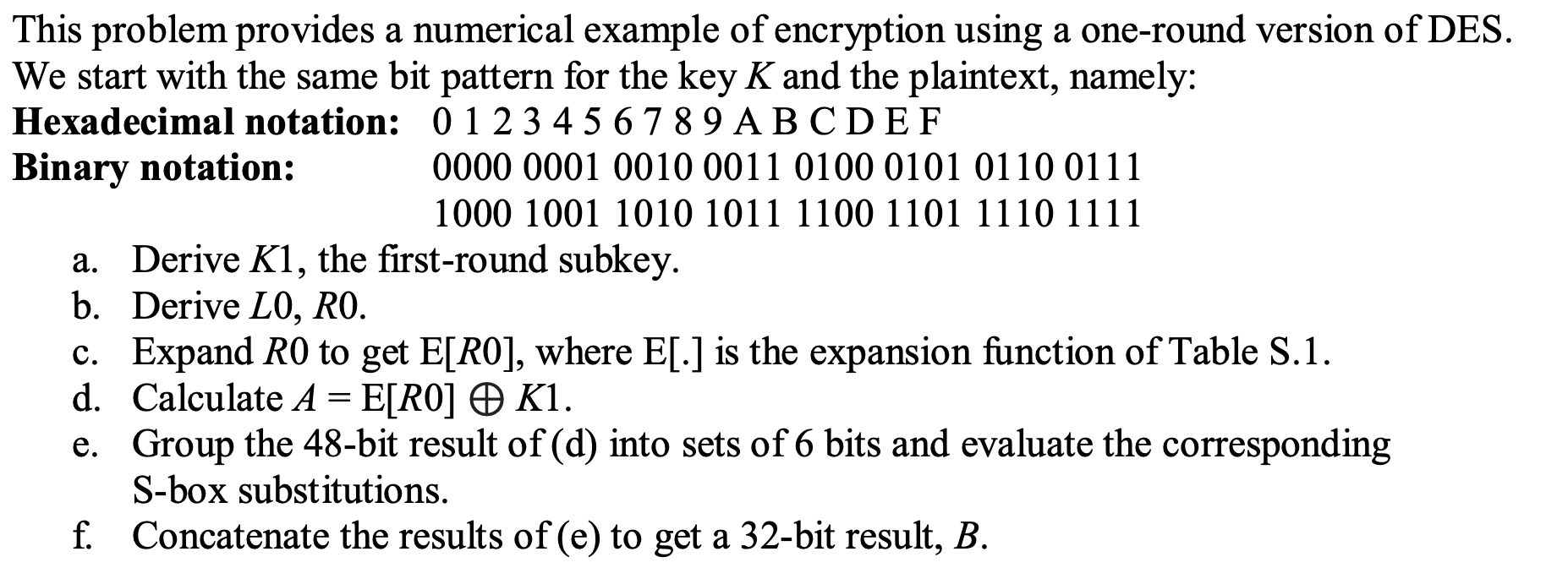Home /
Expert Answers /
Computer Science /
nbsp-please-provide-step-by-step-explanation-this-problem-provides-a-numerical-example-of-encrypt-pa163
(Solved): Please provide step by step explanation This problem provides a numerical example of encrypt ...
Please provide step by step explanation
This problem provides a numerical example of encryption using a one-round version of DES We start with the same bit pattern for the key \( K \) and the plaintext, namely: Hexadecimal notation: 0123456789 A B C D E F Binary notation: \( \quad 00000001001000110100010101100111 \) 10001001101010111100110111101111 a. Derive \( K 1 \), the first-round subkey. b. Derive \( L 0, R 0 \). c. Expand \( R 0 \) to get \( \mathrm{E}[R 0] \), where \( \mathrm{E}[.] \) is the expansion function of Table S.1. d. Calculate \( A=\mathrm{E}[R 0] \bigoplus K 1 \). e. Group the 48-bit result of \( (d) \) into sets of 6 bits and evaluate the corresponding S-box substitutions. f. Concatenate the results of \( (\mathrm{e}) \) to get a 32-bit result, \( B \).
g. Apply the permutation to get \( \mathrm{P}(B) \). h. Calculate \( R 1=\mathrm{P}(B) \bigoplus L 0 \). i. Write down the ciphertext.
Expert Answer
Answer. Let M be the plain text message M = 0123456789ABCDEF (HexaDecimal). Writing M in binary we get, M = 0000 0001 0010 0011 0100 0101 0110 0111 1000 1001 1010 1011 1100 1101 1110 1111 (64bits) L = 0000 0001 0010 0011 0100 0101 0110 0111 (32bits)

